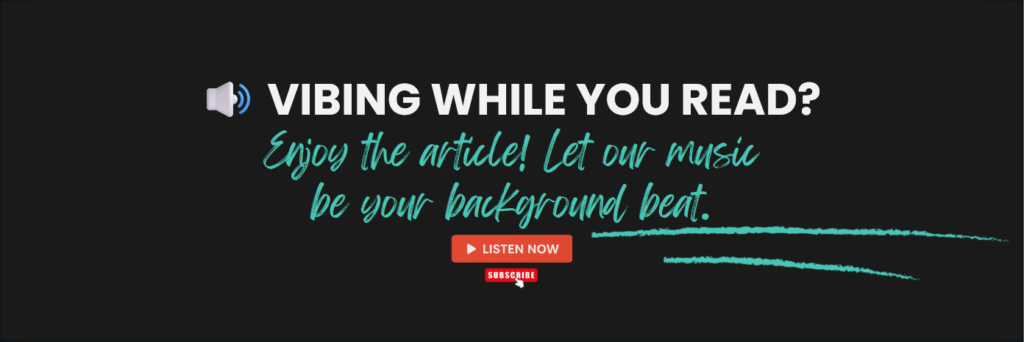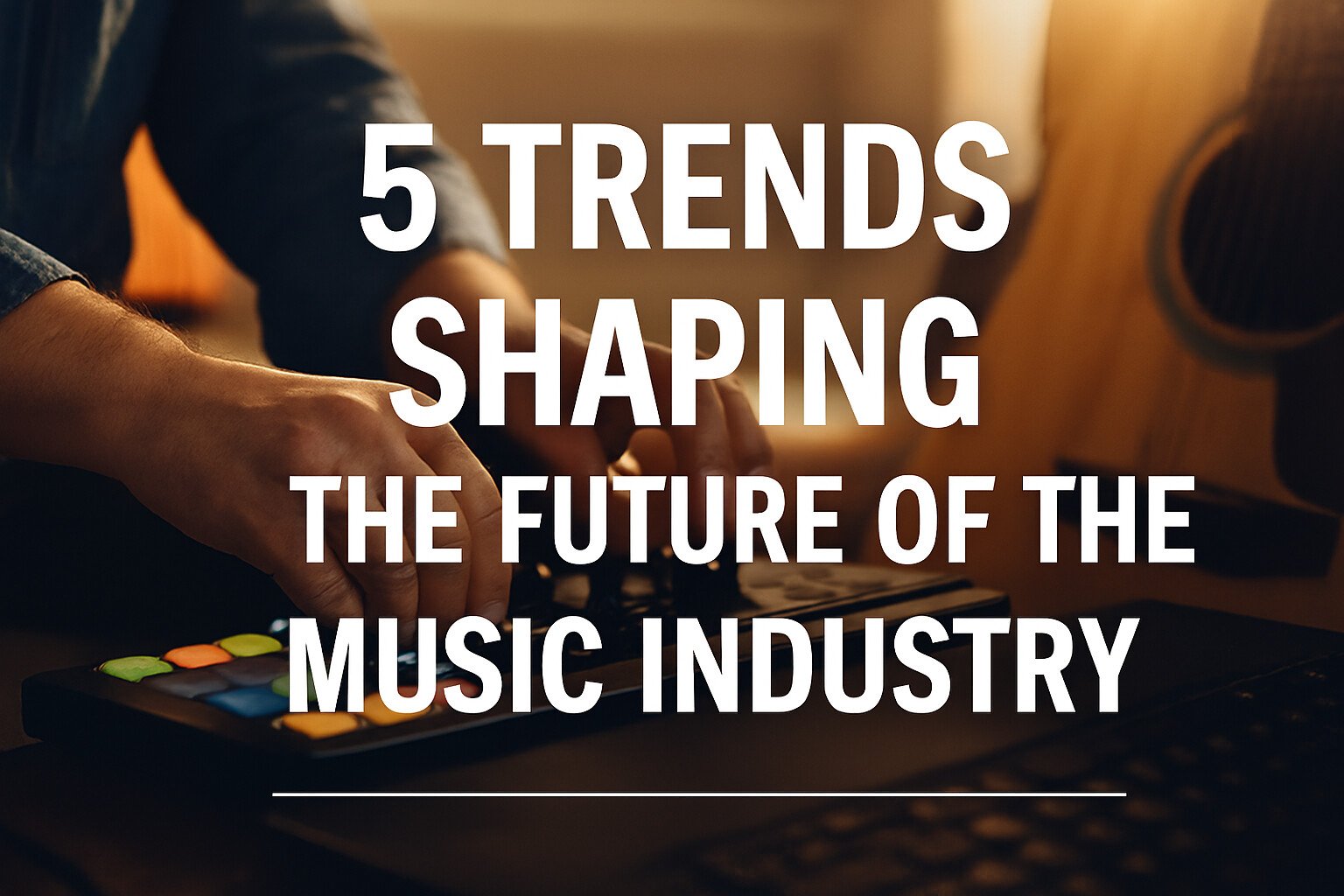
The music industry is no stranger to change, but in recent years, it’s undergone a complete transformation, thanks to new technology, evolving fan behavior, and shifting business models. As we move further into 2024, the future of music is looking more exciting—and unpredictable—than ever. Whether you’re an artist, a fan, or just someone who’s curious about where the music world is headed, here’s a breakdown of five trends that are reshaping the industry.
1. Streaming Dominance and Subscription Evolution
Streaming platforms like Spotify, Apple Music, and Amazon Music have become the dominant force in the way people consume music. But with streaming already making up more than 80% of the industry’s revenue, it begs the question: what’s next? While Gen Z and Millennials are all about the playlists and curated vibes, there’s growing chatter about how artists are compensated. Right now, artists earn fractions of a cent per stream, which has raised debates about the sustainability of the model.
Enter fan-centric streaming, a new approach where subscription fees are divided based on what fans listen to, rather than pooled across the platform. This means that when you binge-listen to your favorite indie band, more of your money actually goes to them. It’s fairer and could significantly alter the landscape.
Additionally, the rise of podcasts and audiobooks on music platforms is worth noting. Spotify, for example, has been heavily investing in podcasts, aiming to make its platform the ultimate audio destination. This could lead to more diverse subscription packages that offer music lovers not just their favorite tunes but also immersive audio content like exclusive interviews, artist podcasts, and more.
2. The Rise of AI in Music Creation
AI is more than just a buzzword—it’s changing the way we create and experience music. AI tools like OpenAI’s Jukebox and Amper Music are helping producers compose entire tracks in minutes, enabling more creators to jump into the music scene without the need for advanced music theory knowledge or production skills. While some purists argue that AI-generated music lacks the soul of human-made art, there’s no denying the potential for growth here.
Moreover, AI is being used to analyze massive amounts of data to predict trends, suggest song structures, and even help artists optimize releases for maximum reach. Streaming platforms are already using AI-driven algorithms to recommend music tailored to each listener’s preferences, and this will only become more personalized in the future.
But it’s not all about algorithms. AI is also reshaping how we experience live music. Virtual concerts enhanced with AI-generated visuals and soundscapes are becoming more common, offering fans an entirely new way to engage with their favorite artists from the comfort of their homes.
3. The NFT Boom and Blockchain Integration
In 2024, NFTs (non-fungible tokens) are still shaking up the music world. At first, they might have seemed like a passing trend, but NFTs have become a viable way for artists to regain control over their art and earnings. By selling music, exclusive content, or even concert tickets as NFTs, artists can bypass traditional gatekeepers like record labels and streaming platforms.
The appeal of NFTs goes beyond digital collectibles. They offer a new level of exclusivity. For example, artists can release limited-edition tracks or give fans backstage access to virtual events through NFT purchases. Not only does this create new revenue streams, but it also fosters a closer connection between fans and artists.
On the technical side, blockchain technology ensures transparency and security, which is especially important for royalty payments. This tech can track every time a song is played and ensure the correct people—whether it’s the songwriter, producer, or artist—are compensated fairly. Blockchain is also being tested in royalty distribution, offering a more transparent and efficient way to handle payments, cutting out middlemen and making sure artists get their fair share.
4. The Evolution of Live Music: Virtual, Hybrid, and Immersive Experiences
Remember when virtual concerts were just a temporary fix during the pandemic? Well, they’re here to stay. While nothing beats the experience of being in a crowd, screaming along to your favorite songs, virtual and hybrid concerts are carving out a permanent spot in the music ecosystem. Platforms like Wave and Stageverse are leading the charge, creating immersive, 3D concert experiences that allow fans to interact in ways that aren’t possible at a traditional live show.
Hybrid concerts, which blend in-person and digital elements, offer artists more flexibility and fans more options. For example, you can attend a concert in person, but fans around the world can tune in online, complete with interactive features like virtual meet-and-greets, merchandise shops, and real-time fan chats.
On top of that, augmented reality (AR) and virtual reality (VR) are stepping up the live music game. AR apps can enhance a physical concert experience by overlaying digital elements onto the real world. Imagine going to a festival and seeing holograms of your favorite artists performing beside you. Meanwhile, VR concerts offer the closest thing to teleporting into a live gig, complete with 360-degree views and immersive soundscapes.
5. The Power of Social Media and Short-Form Content
Social media has been crucial for music discovery for years, but the rise of short-form video content has taken things to a whole new level. Platforms like TikTok and YouTube Shorts have become powerful engines for launching music careers, with songs going viral overnight thanks to catchy 15-second clips. What makes TikTok so influential in the music world is its ability to democratize music discovery—anyone can go viral, and the algorithm doesn’t care if you’re an A-list star or a bedroom producer.
Record labels are now strategizing around TikTok trends, and artists are crafting songs specifically for social media. Short, hook-heavy tracks are perfect for the platform’s quick consumption model. We’ve already seen this with hits like Lil Nas X’s “Old Town Road” and Olivia Rodrigo’s “Driver’s License,” which found massive success on TikTok before dominating charts.
Additionally, social media platforms are becoming more integrated with streaming services, making it easier than ever for fans to listen to a new track immediately after seeing it on a friend’s story or a viral dance challenge. The future of music promotion is all about creating snackable content that grabs attention in the first few seconds and keeps users coming back for more.
Conclusion: The Future is Now
The music industry in 2024 is fast-paced, tech-driven, and more accessible than ever before. From streaming innovations and AI-powered creations to the rise of NFTs and immersive concert experiences, the future of music is all about embracing change and adapting to new opportunities. Whether you’re a die-hard music fan, a rising artist, or someone in the industry, staying ahead of these trends will be key to thriving in this ever-evolving landscape.
So, what’s next for the music world? The answer lies in how quickly we can adopt new technologies, engage with innovative platforms, and, of course, keep the music playing.


